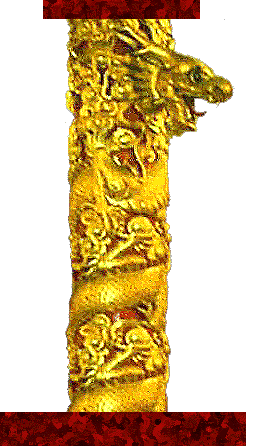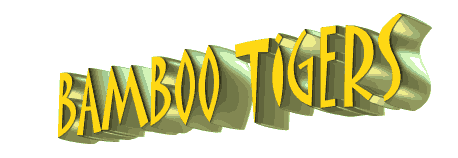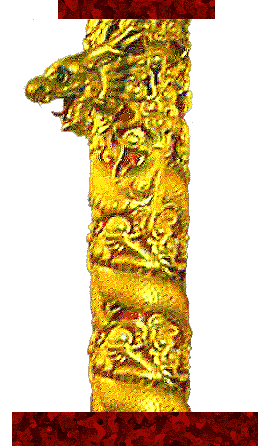| |
Driving back to San Francisco after the first interview, Simmons reflected deeply on what he had heard and who he heard it from. He was fully aware that the gang kids didn't like to talk to anybody. It took a period of time to develop their trust in you. He'd been working at that for less than two years, but already he had developed the philosophy that the only thing that worked was rapport. You had to gain their confidence. The only way to do that was by treating them like human beings. When he approached them, he never felt embarrassed or any less of an investigator to say, "Look, I want to get this thing solved, and I need your help because maybe through your help, I can can get what I need."
He was seldom surprised anymore except perhaps by the girls who ran around with them or married them. He considered them tougher than the men. They were certainly more cold-blooded than the men, which was why the gang kids trusted them implicitly. They never admitted the truth about anything. Dragon ladies.
One thing he knew for sure about the kids. The last one of them you would expect to "turn" was the one who turned, and it was amazing how many times you could do it. Once you got them on your side, they were a wealth of information. He thought of Hotdog Louie.
Although Simmons had been graduated from the San Francisco Police Academy in 1967 and had served at the Richmond and Southern police stations and in the Crime Prevention Unit, it was only since his transfer to Intelligence in late August 1972 that he had come up against the Chinese youth gangs.
He remembered his baptism by fire with the Joe Boys. They were better known then as the Chung Ching Yee. Around the second week of September in 1972, George Huegle and Diarmuid Philpott in Intelligence received information that the Chung Ching Yee had a clubhouse out on Farallones Street in the Ingleside District, a predominantly black area where the Chinese boys doubtless thought the police would never look. They would be expected to set up in a Chinese neighborhood, perhaps in a white one, but certainly not a black one--relations between Chinese and blacks were generally of malign spirit. The Chung Ching Yee had picked a superb "safe" house.
As the "raw recruit" in Intelligence, Simmons was sent out to reconnoiter the area. Maybe he could find the clubhouse. He already knew some of the gang's cars, from having had them pointed out to him around Chinatown, and could recognize some of the kids from the photos on file.
About 9:30 in the morning, he was driving near Farallones. Suddenly he saw a Chung Ching Yee whizzing past in a car. Simmons wheeled his own unmarked vehicle around, but the car had disappeared. The same thing happened twice more, with other cars and other kids, and each time the car seemed to drop off the face of the earth. Simmons began to feel like Ali Baba looking for the 40 Thieves: "Open Sesame!" and they were gone.
Then he caught sight of a young man named Wayne Yee driving a silver Plymouth Barracuda in the direction away from Farallones. The notorious Joe Fong, founder of the Chung Ching Yee, was in the passenger seat. Ali Baba had found some gold. Simmons radioed this sighting to headquarters. There was an arrest warrant pending for Joe Fong charging him with an attempted kidnap. Simmons followed. He had no need to stay under cover to arrest the Joe Boy chieftain.
Joe and a dozen of his Chung Ching Yee had tried to kidnap a Wah Ching named Sammy Choi at the Pagoda Theater on Columbus Avenue, a movie house on the fringe of Chinatown. Sammy had testified against Joe in his trial for the murder of another Wah Ching, 14-year-old Harry Kwan, who was gunned down in front of the Police Athletic League building on Stockton Street in March 1972. Acquitted of the crime, Joe set out to avenge himself against his accusers. The plan was to cut off Sammy's head and give it a good kick down the 600 block of Jackson Street, a Wah Ching base, as a warning to them if they ever again dared to screw with any Chung Ching Yee. But a sharp-eyed Wah Ching lieutenant named Michael Mah happened to be with Sammy and fired off a few rounds from his .32 automatic. The Chung Ching Yee quickly dispersed.
Wayne Yee was in a big hurry the day Simmons followed his car from Farallones. He was doing between 80 and 90 miles an hour on the freeway headed into the heart of town. Simmons lost the car when it turned off the Broadway ramp on the outer edges of Chinatown. Returning to the office, he was told to go back to Farallones that night and continue the search.
At 8 in the evening, he parked his car in the 100 block of Farallones to search for the gang headquarters. Being mid-September it was getting dark, and in plainclothes he was undetectable as a policeman. In one breathless moment, he glanced to the right and saw three Chung Ching Yee cars pulled over to the side of a house sitting well back from the street. One was Wayne Yee's silver Barracuda. The others belonged to Arthur Won and Brian Kwan.
The house was situated 25 yards away from the public walkway. It would have been easy to miss the cars parked there even in the daytime. Now he understood why he hadn't found them that morning. He had received instructions to call Lieutenant Lawler, Chief of Intelligence, at the Four Seas Restaurant in Chinatown if he found anything interesting. Lawler was scheduled to dine there with Huegle and Philpott and several members of the Homicide Detail including John McKenna. Simmons called the restaurant. Lawler instructed him to contact Communications and have them send a black-and-white unit with uniformed personnel to the location.
Simmons hung up the phone and went to his radio.
Shit, he thought, my mother didn't raise any fools! I better get TWO black-and-whites out here.
The two units comprising four men showed up shortly. He didn't know them, and they were not too sure about him. He was dressed rather shabbily and had a beard, his standard appearance for walking through the streets of Chinatown without attracting excessive attention. They asked for his identification. He presented it. While they studied it carefully with a concealed flashlight, he observed that all four men were very young, undoubtedly recent graduates of the Police Academy. He knew he'd have to spell out his orders to get the kind of backup he might need.
He told them his plan. "Now, you guys listen to this. I'm gonna get down on my belly and crawl up to the house. I called for two units because there may be some trouble tonight. The guys in there are assholes. They're dangerous, and they're probably armed to the teeth. When I get to the house, I'll sniff around and see if the bastards are really inside. If so, I'll come back and advise you."
He paused and looked each man in the eye. "This is serious business, fellas. You be ready to go. No bullshit."
They nodded their understanding, their eyes a little wider open than when they first saw the dubious character with the beard. They all had their hands resting on the butts of their handguns and turned their thoughts to the bigger weapons in the black-and-whites.
Simmons hit the dirt and crawled on his belly. When he got to the house, he found one of the window shades was raised about a foot. He held his breath and looked inside.
Seven or eight of the Chung Ching Yee were playing cards. At one of the tables sat Joe Fong.
Simmons scurried back to the sidewalk. "O.K., they're in there. Now, I want one of you with a shotgun right behind me. The other three follow. But don't be too far away."
He started across the lawn at a fast duck walk. Near the house he looked back over his shoulder. All four men, including the one with instructions to stick with him, still stood on the sidewalk poised like statues with their weapons raised.
"The dumb bastards have got their thumb up their ass!" he muttered. "Fuck it!"
Stopping only to signal the other officers to move in with him, he lunged toward the door, which stood slightly ajar, and burst into the living room waving his .44 Magnum service revolver.
"I'm a cop!" he roared. "Freeze! Everybody in this house is under arrest!"
The kids in the front room froze, but the noise of others scrambling about echoed throughout the house. The rookie cops crowded in behind Simmons, and in a matter of seconds, the dinner party from the Four Seas joined them after a helter-skelter dash from Chinatown upon receiving his call. The house seemed to be full of youths. Police called for a Dog Unit. The canine patrol sniffed out three more boys from under the house.
The Farallones raid proved fruitful. Numerous weapons, especially rifles, were found. An informant later was to tell the police that a large cache of handguns in the house escaped detection at the time. Confiscated literature on the goals of the Chung Ching Yee revealed to police that the group followed traditions of the Chinese crime organizations known as Triads.
Although the Chung Ching Yee, like most Chinese gang kids in North America and Europe, were generally ignorant of the inner workings of Triads, it was as if they had absorbed the principles and practices by osmosis. So many parallels could be drawn between gang behavior and Triad policy that it was impossible to discount a cultural connection.
Triads had their genesis in 386 A.D. when religious fanatics organized to propagate the forbidden cult of the Buddha Amitabha. Evolving over the centuries as "Robin Hood" bands, they were, according to legend, reformed by five fugitive monks to engage in guerrilla warfare against the hated Ch'ing Dynasty after the Manchu conquest of China in the mid-17th century.
Two hundred years later, Triads still served the same unsuccessful cause. Enlisted in open warfare against the Ch'ing in the Taiping ("Great Peace") Rebellion from 1850 to 1864, they failed again in efforts to remove from China the hated Manchurians and all other foreign influences. Their rout at Shanghai by Manchu forces and international mercenaries commanded by British General C.G. Gordon proved so inglorious as to earn the Englishman the lasting sobriquet "Chinese" Gordon in recognition of his victory, a name he still carried at the time of his death twenty years later during the Siege of Khartoum in Africa.
The Triads participated in other such uprisings, as well, notably the Boxer Rebellion of 1900. At the behest of Dr. Sun Yat-sen, the "father" of modern China, they also joined in the final struggle against the Manchu, which led to establishment of the Republic of China in 1912. After that, the much respected and feared Triads degenerated into wholly criminal bodies dominating the underworlds of Mainland China, Hong Kong and, eventually, Taiwan. Their shadowy influence likewise spread to virtually all Overseas Chinese communities.
Driving back to San Francisco after his interview with Hotdog Louie in the Lincoln Louie case, Simmons laughed aloud when he thought about the night on Farallones Street nearly two years before. He wondered if he'd ever be so gung-ho again, knowing what he now knew about the gang kids. That they hadn't shot him dead on the spot must have been a matter of sheer luck. He believed firmly that it was the Farallones raid that had launched him into a career of investigating Chinese youth gang crime. For him, it had thus served a useful purpose on the personal level. For the Police Department, it had served to prove that the Chung Ching Yee, now the Joe Boys, were as dangerous as any gang around.
Hotdog's revelation of the Wah Ching visit to the motel on Lombard Street after Lincoln Louie's murder proved crucial in John Wong's trial. The motel clerk was sharp. He had thought these kids looked a little hokey, so when they registered and went to a room, he stepped outside and checked the license number they had written on the registration card against the one on the car. It didn't match. He wrote down the right number, which showed John Wong as the Honda's owner.
Charges also were lodged against John Wong's wife, but were later dropped. The trial lasted about five weeks. His wife was subpoenaed by the defense, oddly enough, to testify to the events that took place in the apartment that night. The young, yet very competent Deputy District Attorney handling the prosecution, Ken Robinson, brought out in cross-examination of the girl that she had been sitting in a direct line of vision enabling her to watch Lincoln's merciless torture. She was extremely pretty, a dark-eyed 18-year-old with a look of innocence.
"What were you doing while you sat at the kitchen table a few feet away from where this young boy was being beaten, burned and choked?" asked Robinson.
"I was eating ice cream," she replied.
Michael "Hotdog" Louie testified for the prosecution in the John Wong trial, supplying the same information he had given Simmons in the Sacramento interview. Gordon Wong and David Yee contributed further testimony to the effect that John Wong was guilty of participating in Lincoln's torture.
The last defendant in the Lincoln Louie murder and the only one to go to trial, John Wong was found guilty and sentenced to prison.
Of the defendants charged in the Lincoln Louie case, Gordon Wong was the only one granted full immunity from prosecution because he had least to do with the kidnapping, assault and homicide. His cooperation with law enforcement officials earned him the gratitude of the police. They assisted in his being accepted for enlistment in the Navy despite his record of minor offenses. That was the end of his association with the Chinatown gangs.
Most of the other young gangsters were not that smart. They seemed hellbent on making it in the world of bamboo tigers.
| |
|









